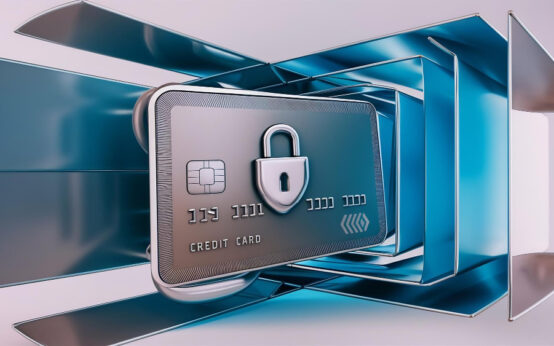Choosing a credit card for online shopping can be daunting. With so many options, it’s vital to understand what to look for. In this guide, we’ll explore key factors such as interest rates, rewards, security features, compatibility with retailers, and customer service. Let’s dive in and find the best credit card for your online shopping needs.
Understanding Interest Rates and Fees
When choosing a credit card for online shopping, it’s essential to understand the different interest rates and fees that may apply. Most credit cards come with APR (Annual Percentage Rate), which is the interest rate you’ll pay if you carry a balance from month to month. Be sure to compare the APRs of different cards to find the best deal.
Additionally, cards may come with various fees such as annual fees, late payment fees, and foreign transaction fees. An annual fee is a charge you pay once a year for the privilege of using the card, while late payment fees apply if you miss your payment due date. Foreign transaction fees are extra charges for purchases made outside of your home country.
Some credit cards offer introductory 0% APR, which can be highly beneficial if you plan to make a large purchase and need some time to pay it off without accruing interest. However, read the fine print to understand when this promotional rate ends and what the regular APR will be afterward.
Evaluating these factors can help you choose a credit card that minimizes extra costs and suits your online shopping needs.
Rewards and Cashback Options

When choosing a credit card for online shopping, considering rewards and cashback options can maximize your savings. Numerous cards offer cashback on all purchases, and some provide higher percentages on specific categories such as groceries, dining, or online shopping itself. It’s essential to analyze which categories you spend the most on and select a card that aligns with those habits.
Many cards also offer reward points that can be redeemed for various perks, including travel miles, gift cards, or statement credits.
Pay Attention to Bonus Offers
Some credit cards come with attractive bonus offers, like earning extra points or cash back if you spend a certain amount within the first few months. These introductory bonuses can provide significant value but ensure that the spending requirement aligns with your budget.
Consider Annual Fees
While some cards offer lucrative rewards, they might also come with annual fees. Evaluate whether the rewards and cashback you earn will outweigh these fees. Sometimes, no-annual-fee cards offer competitive rewards that might suit your needs better.
Rotating Categories Some credit cards offer rotating categories where cashback percentages change periodically. These can be beneficial if you can adjust your spending habits to match the categories each quarter. Ensure you can manage and keep track of these rotating categories effectively.
Security Features to Look For
Secure Connection
Ensure the credit card provider uses a secure connection for all transactions. This means that the website should have HTTPS and SSL certificates. A secure connection safeguards your sensitive information from cyber threats.
Fraud Detection Tools
Look for credit cards that offer fraud detection tools. These tools monitor spending patterns and alert you to any suspicious activity. Early detection can prevent significant financial loss and hassle.
Zero Liability Protection
Many credit cards offer zero liability protection, which means you won’t be held responsible for unauthorized charges. Make sure your card issuer provides this feature to protect your finances.
Two-Factor Authentication
Two-factor authentication adds an extra layer of security when you access your account online. This feature requires something you know (like a password) and something you have (like a phone) to verify your identity.
Virtual Card Numbers
Some credit card issuers offer virtual card numbers for online purchases. These are temporary card numbers used for specific transactions, adding an extra layer of security by keeping your real card number safe.
Compatibility with Online Retailers

When selecting a credit card for online shopping, it’s essential to verify its compatibility with popular online retailers. Some credit cards offer special deals, discounts, or cashback options when used at specific e-commerce platforms like Amazon, eBay, or Walmart. This can significantly enhance your savings.
Make sure your credit card supports seamless integration with these retailers. Some cards might offer exclusive rewards when shopping through their portals. Additionally, many cards are now compatible with digital wallets like PayPal, Google Pay, or Apple Pay, streamlining your checkout process and providing enhanced security.
It’s also advisable to check if the credit card issuer has partnerships with international online retailers. This can be especially useful if you frequently shop on global platforms. These partnerships might offer reduced foreign transaction fees or additional reward points.
Lastly, ensure your card’s fraud detection systems are robust and tailored for online transactions. This helps in protecting your purchases and provides peace of mind when shopping online.
Customer Service and Support
When it comes to choosing a credit card for online shopping, customer service and support play a crucial role. If you encounter any issues with your card or transactions, a responsive and efficient support team can be invaluable. Look for credit card companies with 24/7 customer service availability, so you can get help any time, day or night.
Check whether the company offers multiple channels of support, such as phone, email, and live chat. This flexibility ensures you can reach out in the way that is most convenient for you. Many top providers also have comprehensive online help centers with FAQs and guides to help resolve common issues quickly.
Another useful feature is the presence of a dedicated mobile app that allows you to manage your account, monitor transactions, and communicate with customer service directly from your smartphone. This can save time and make managing your card more convenient.
Additionally, consider user reviews and customer satisfaction ratings to get an idea of how reliable and effective the customer service is for different card providers. Higher satisfaction rates generally indicate better service and support experiences.
Finally, ensure that the security of your interactions with customer service is top-notch. Look for providers who use secure communication methods to protect your personal and financial information during support interactions.



 Best credit cards secured: your path to a stronger credit history <p style='text-transform:none; line-height:20px !important; font-size:16px; font-weight:normal; color:#424242; margin: 0px; margin-top:10px;'>They offer a smart way to show lenders you’re serious about managing your finances.</p>
Best credit cards secured: your path to a stronger credit history <p style='text-transform:none; line-height:20px !important; font-size:16px; font-weight:normal; color:#424242; margin: 0px; margin-top:10px;'>They offer a smart way to show lenders you’re serious about managing your finances.</p>  The best credit cards for lounge access: your key to premium airport comfort <p style='text-transform:none; line-height:20px !important; font-size:16px; font-weight:normal; color:#424242; margin: 0px; margin-top:10px;'>With these cards, you have exclusive access to lounges, offering comfort while you wait for your flight.</p>
The best credit cards for lounge access: your key to premium airport comfort <p style='text-transform:none; line-height:20px !important; font-size:16px; font-weight:normal; color:#424242; margin: 0px; margin-top:10px;'>With these cards, you have exclusive access to lounges, offering comfort while you wait for your flight.</p>  Safe, simple, and fun: discover the best debit cards for kids <p style='text-transform:none; line-height:20px !important; font-size:16px; font-weight:normal; color:#424242; margin: 0px; margin-top:10px;'>These cards offer the flexibility and convenience that both parents and kids need.</p>
Safe, simple, and fun: discover the best debit cards for kids <p style='text-transform:none; line-height:20px !important; font-size:16px; font-weight:normal; color:#424242; margin: 0px; margin-top:10px;'>These cards offer the flexibility and convenience that both parents and kids need.</p>